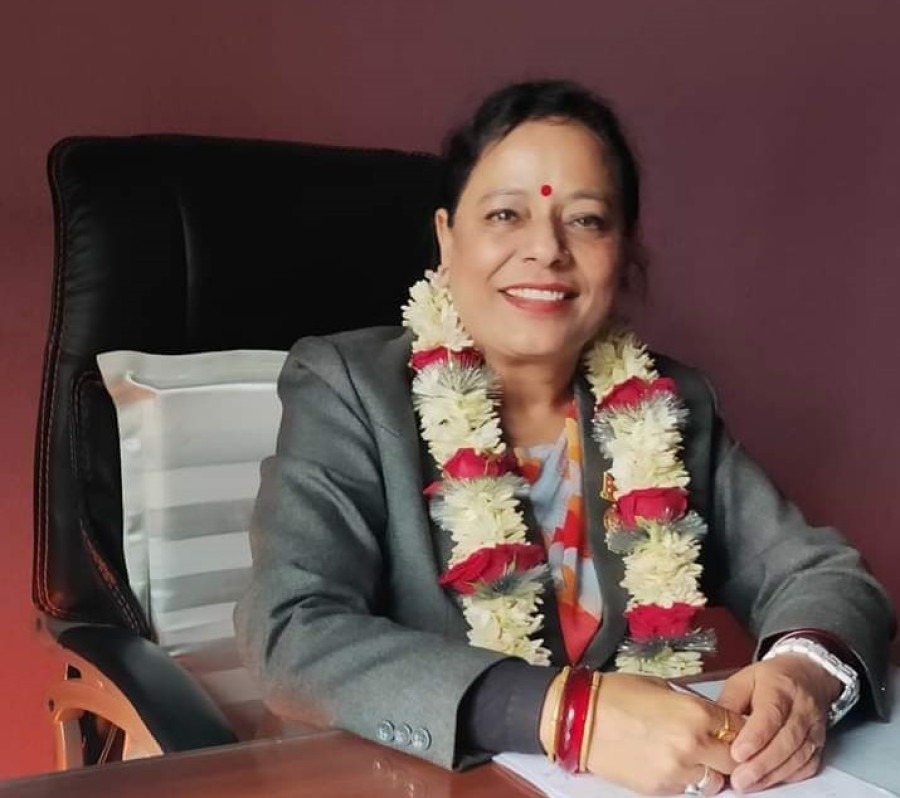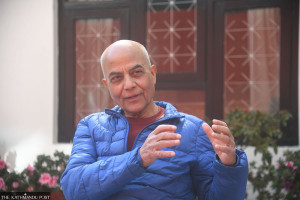Interviews
‘People seem to be disregarding the seriousness of the issue’
The Ward 14 of Kathmandu has one of the highest Covid-19 cases in the city. Its ward chairperson, Sova Sapkota, says her office is doing its best but the people are disregarding public health and safety rules.
Anup Ojha
On Thursday, Ward No. 14 of Kathmandu Metropolitan City was sealed after a sudden surge in coronavirus cases in the area. As of Friday afternoon, 44 cases have been reported in the ward, which is one of the most crowded places in Kathmandu. Kalanki, Balkhu and Kalimati areas have many low-income renters, mostly from Tarai districts who work as daily wage labourers. After the government lifted the nationwide Covid-19 lockdown after nearly four months on July 21, many people who had left for their home districts during the lockdown returned to Kathmandu for work.
Gyan Bahadur Oli, the Covid-19 focal person for Kathmandu Metropolitan City, has said many people who returned to Kathmandu after July 21 had come from the coronavirus-hit districts and some of them might have unknowingly brought the infection.
Ward No. 14 is one of the most affected places in Kathmandu and with a large number of out-of-Valley labour population residing in the area, Oli says there is a great possibility of the infection numbers growing in the coming days.
Anup Ojha of the Post interviewed Sova Sapkota, the ward chairperson of Kathmandu-14, to find out how her office was fighting the pandemic and what challenges lie ahead: Excerpts:
Can you tell us what is the present status of ward 14? Why do you think is the main reason behind such high infection rates in your ward?
We have sealed our ward from Thursday due to the spike in Covid-19 cases. Cases have been seen in all areas such as Khadka Gau, Balku area, Kuleshwor, Kuleshwor Awas, Lampati and Leak Marga. Even our ward office has been sealed for the past two days after the landlord who lives in the top floor of our office building tested positive for Covid-19. We are opening shops selling essential items only for four hours in the morning from 5am to 9am to limit public interaction and movement.
This is one of the biggest wards in the city, so controlling and monitoring the situation has been a challenge. Our main concern, however, is the cavalier attitude displayed by many people. Their negligence and disregard for public health safety are risking the lives of others.
As for the origin of the infection, we suspect that it was imported from outside the Valley. There are many people who live and work in the Kalimati, Balkhu and Kalanki areas. Most of them come from Tarai districts and India which have high infection rates. When they entered Kathmandu Valley from different entry points, they did not observe the 14-day quarantine rule.
Today, we have one of the highest cases of coronavirus infection in Kathmandu. Although part of the reason for the high infection rate in Ward 14 could also be high test numbers, We have already tested around 200 people and sent the name list of 150 people to the central office for testing as they may have come in close contact with the infected people.
I have been consulting with Mayor Bidya Sundar Shakya to implement various measures to stop the virus from spreading further in the ward.
What is the current health status of the people in your ward who have tested positive for Covid-19?
The infected people are from the 19 to 75 age group and most of the cases have been asymptomatic. Out of 44 positive cases, we have had only four symptomatic cases. The symptomatic patients from Kuleshowr have been admitted to Ayurveda Teaching Hospital in Kirtipur. The other patients are staying in home quarantine under our surveillance.
What are your plans to stop the spread of the infection and protect those vulnerable to the infection, particularly the eldelry and the children?
Our concern is to protect all the citizens in the ward. Of course, eldery people above 60 and below 12 years of age are at great risk. We believe that public awareness and their conduct can go a long way to stop this virus. So we have been disseminating messages about public health safety through loudspeakers in every neighbourhood.
We have also decided to mobilise local youths and volunteers in our campaign.
We have already formed youth committees who will be mobilised in 16 areas of the ward to raise awareness. From Thursday we have also been spraying chemical disinfectants in every neighbourhood.
Most shops and businesses are closed right now, but there has been resistance from some hoteliers and shop owners. We will mobilise police to enforce the rule.
The World Health Organization says spreading the chemical disinfection is harmful for people’s health and it does not kill the coronavirus. So why are you employing the method that has already been debunked and warned against by the global health body?
We are aware that it does not protect people from the coronavirus. But we have been receiving complaints from the public. They are saying that the ward office is not doing anything. We are spraying chlorine water just to allay the concern of the people. We will soon stop it.
People are still not following the mask and social distancing rules even though the number of Covid-19 cases are increasing. Where is the local authority lacking when it comes to enforcing these public health safety rules?
Many people are just not willing to understand, they seem to be disregarding the seriousness of the issue. We are doing our best to control such kinds of activities, but the people themselves should also be responsible. We have some businessmen who say their areas should be sealed for at least a week and these are the same people who violate the rules by opening their shops if they get customers. People are just not serious.
We have increased our inspection by mobilising youth volunteers, ward committee members and Nepal Police personnel to catch the rule violators.
Every local government is under pressure to protect the lives of their people right now, but they also need assistance from the central government. We need to run more tests, conduct effective contact tracing and run various prevention measures, and a ward office alone cannot do that without the help from the federal government.




 14.12°C Kathmandu
14.12°C Kathmandu.jpg)




.jpg&w=200&height=120)








